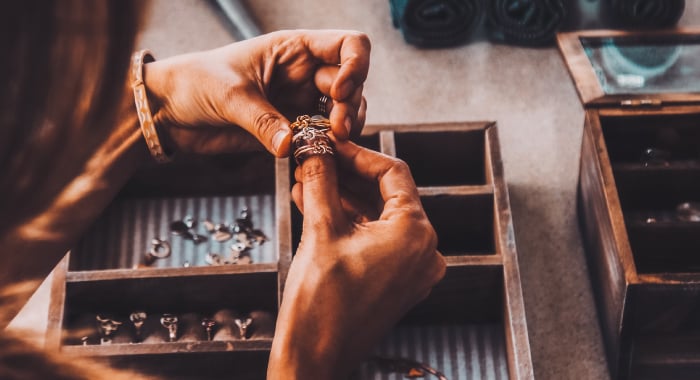For peace of mind and financial protection, it’s important to consider insuring the items in your home. Many people already have homeowners or renters insurance – but what’s protected by these policies, and what happens if some items are more valuable than your current insurance limits?
Read on for a Q&A about home insurance and how best to protect your belongings.
When Does Insurance Protect My Belongings?
Renters and homeowners insurance helps you replace your belongings in case they are damaged, destroyed or stolen. This could be due to theft, vandalism, a housefire, plumbing overflow, or a weather-related incident such as ice, snow or lightning.
While the most common household perils are covered, many insurance policies don’t automatically cover property damage from flooding, earthquakes or animal infestation – so be sure to read your policy information closely and ask plenty of questions, in order to understand exactly what’s covered outright, and what might need additional coverage. This is especially important if you live in a natural disaster-prone zone, or suspect that your home may be more susceptible to certain types of damage.
What Should I Insure?
Valuable items should be insured, including collectibles, artwork, jewelry and family heirlooms. Beyond this, you’ll likely want insurance that covers other expensive items such as your computer, television, additional electronics, large appliances and so on.
Of course, the smaller items in your home can also add up fast – including your bed, furniture, kitchenware, rugs and decorations. If a burglary, plumbing accident or any kind of property-damaging situation occurs, the cost to replace these things could be significant.
What Does My Insurance Already Cover?
It’s a good bet that if you own your home, you already have a homeowners insurance policy. While this coverage isn’t required by law, it is required by most mortgage lenders. Homeowners insurance generally covers damage to the structure of dwelling, as well as the belongings inside. You’re also covered for personal liability incidents, in case an injury or damage to someone else’s property occurs at your home.
If you rent your home, you can opt for renters insurance. Similar to homeowners insurance, this protects your belongings, covers personal liability costs, and pays expenses if your dwelling becomes uninhabitable due to a covered peril such as fire. Renters insurance is often bundled together with car insurance – be sure to ask your provider.
As a renter or homeowner, you can opt to increase or decrease your insurance coverage limit, depending on the value of your belongings. Remember that the policy deductible refers to how much money you’ll need to pay out of pocket, before the policy kicks in – so check this figure and ensure it matches what you’d be prepared to spend.
Should I Insure Some Items Separately?
Beyond simply adjusting the limit of your insurance policy, you can also add a separate rider for certain items of greater value. Insuring items separately is often a better deal than simply raising your coverage limit, which can affect the cost of your monthly premiums.
Items to consider insuring separately include valuable artwork, jewelry, or precious heirlooms. Many people also opt for a separate insurance rider to cover their musical and sports equipment.
If you’re not sure how much your valuables are worth, think about getting an appraisal. A professional appraiser can help you understand the true value of rare or expensive items such as watches, stamp or coin collections, firearms, antique silverware, and more. With this information in hand, you’ll be much better equipped to choose the right insurance policy and to receive an appropriate payout if damage does occur.
What Else Should I Know?
When choosing an insurance policy to protect the belongings in your home, be sure to ask the following questions:
- What are the coverage limits for my valuables?
- How much would I need to pay before my coverage kicks in?
- What perils are covered? What possible events (such as flooding or sewer backup) aren’t covered? Are any of these common in my area?
- How is depreciation factored into my payout? Will my valuable older items be accurately assessed and covered?
- What’s the cost to add a rider for artwork, jewelry, antiques or heirlooms?





